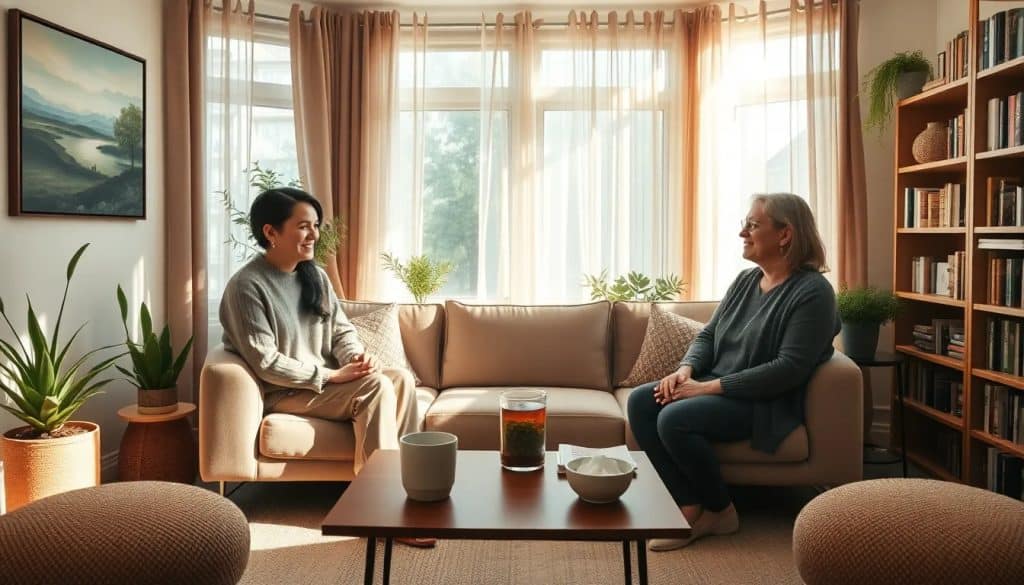In today’s diverse society, many individuals and couples are exploring non-traditional relationship structures such as polyamory. Navigating these unique dynamics can be challenging, which is why Alternative Lifestyle Counseling Chicago | Sex Therapy for Healthy Relationships offers valuable support. This article delves into various aspects of polyamory and alternative relationships, providing insights and practices to enhance emotional health.
Understanding the importance of effective communication and boundary-setting is essential for success in non-monogamous relationships. Therapy tailored for these lifestyles can empower clients to embrace their relationship journeys confidently, fostering a supportive environment where they can thrive.

What is polyamory?
Polyamory refers to engaging in multiple romantic relationships with the consent of all parties involved. It allows individuals to form deep connections with more than one partner simultaneously. This relationship style often emphasizes open communication, trust, and respect, differentiating it from infidelity or cheating.
At the core of polyamory lies an understanding that love is not a finite resource. Many people find that they can love multiple partners without diminishing their feelings for each one. This belief promotes a positive and inclusive perspective on relationships, encouraging emotional growth.
In a polyamorous setting, the dynamics can be complex. Partners may have different needs and expectations, which makes effective communication in relationships crucial. When navigating these relationships, it is essential to discuss feelings, desires, and boundaries openly.
How can alternative lifestyle counseling help you?
Alternative Lifestyle Counseling Chicago | Sex Therapy for Healthy Relationships addresses the unique challenges faced by individuals and couples in non-traditional relationships. Licensed therapists provide a safe and nonjudgmental environment where clients can explore their emotions and relationship dynamics.
Counseling can help clients identify their needs and improve their emotional health by focusing on key areas such as consent, communication, and boundaries. With guidance, individuals can develop the skills necessary to navigate complex relationship scenarios effectively.
Additionally, therapy sessions can provide tools for managing feelings of jealousy or insecurity, which are common in polyamorous relationships. By equipping clients with coping strategies, therapists help them strengthen their connections and foster healthier dynamics.
What are the benefits of sex therapy for healthy relationships?
Sex therapy focuses on the emotional, psychological, and physical aspects of intimacy within relationships. It can significantly enhance the quality of connections among partners, especially in alternative lifestyles. Benefits include:
- Improved communication: Couples learn to discuss their needs and desires openly.
- Enhanced intimacy: Therapy can help partners explore their sexual compatibility and preferences.
- Conflict resolution: Techniques for managing disagreements can strengthen relationships.
- Personal growth: Individuals can gain insights into their own desires and motivations.
By addressing sexual health and intimacy issues, therapy supports the overall well-being of partners. A focus on enhancing these aspects can lead to more satisfying and fulfilling relationships.
How to establish boundaries in non-traditional relationships?
Establishing boundaries is vital in any relationship, but it becomes even more critical in non-traditional arrangements. Clear boundaries help prevent misunderstandings and ensure that everyone involved feels respected and valued. Here are some key strategies:
- Open dialogue: Encourage honest discussions about feelings and expectations.
- Be specific: Clearly define what is acceptable and what is not for each partner.
- Regular check-ins: Schedule time to revisit and reassess boundaries, making adjustments as needed.
By fostering an environment where individuals can express their needs, partners can navigate their relationships more effectively. This proactive approach contributes to emotional well-being and relationship satisfaction.
What types of therapy are available for alternative lifestyles?
Various therapy options cater to individuals and couples in alternative lifestyles. These include:
- Individual therapy: Focuses on personal issues related to relationship dynamics and emotional health.
- Couples therapy: Helps couples navigate their unique relationship challenges and improve communication.
- Polycule therapy: Designed for groups of partners involved in a polyamorous relationship, addressing collective dynamics.
- Sex therapy: Focuses specifically on sexual intimacy and satisfaction within relationships.
Each type of therapy provides tailored support, allowing clients to address their unique concerns and challenges. This variety ensures that individuals can find the right fit for their needs.
How to enhance communication in polyamorous relationships?
Effective communication is essential for the success of polyamorous relationships. Here are some strategies to enhance communication:
- Practice active listening: Ensure that each partner feels heard and understood.
- Be honest: Share feelings and concerns openly, without fear of judgment.
- Use “I” statements: Express personal feelings rather than making accusatory statements.
- Establish regular communication rituals: Check in with each other regularly to discuss relationship dynamics.
By developing strong communication skills, partners can address challenges proactively and foster deeper connections. This practice leads to healthier relationships and a more supportive environment.
What support is offered for couples navigating alternative relationships?
Support for couples in alternative relationships is essential in addressing the complexities they face. The Love Discovery Institute offers various services to assist clients, including:
- Workshops: Educational sessions focusing on communication, boundaries, and relationship dynamics.
- Support groups: A community of individuals who can share experiences and offer insights.
- Individualized therapy: Tailored sessions addressing specific relationship concerns and challenges.
These resources empower couples to navigate their unique journeys, promoting emotional health and relationship satisfaction. By accessing support, individuals can cultivate a deeper understanding of their relationships.
Frequently asked questions about alternative lifestyle counseling
What is alternative lifestyle counseling?
Alternative lifestyle counseling provides therapeutic support tailored to individuals and couples navigating non-traditional relationships, such as polyamory. It addresses unique challenges while promoting emotional well-being and healthy relationship dynamics.
This type of counseling is essential for fostering open communication and understanding in relationships, allowing clients to explore their feelings and desires without judgment.
How does sex therapy improve relationships?
Sex therapy enhances relationships by focusing on intimacy and communication between partners. It provides tools to address sexual concerns and promotes a deeper understanding of each other’s desires and needs.
By improving emotional and sexual connections, sex therapy can lead to more satisfying relationships and a greater sense of fulfillment for both partners.
What are common misconceptions about polyamory?
There are several misconceptions about polyamory, such as the belief that it is merely an excuse for infidelity or that those in polyamorous relationships are incapable of commitment. In reality, polyamory requires a high level of trust, communication, and commitment to all partners involved.
Many people engage in polyamory to enrich their lives and relationships, emphasizing open communication and mutual respect rather than embracing promiscuity.
How can therapy help with communication issues in relationships?
Therapy can provide couples with effective communication strategies, helping them articulate their needs and feelings more clearly. It offers a safe space to explore challenges and identify patterns that may hinder communication.
Through therapy, partners can develop skills to navigate difficult conversations, ultimately fostering a more supportive and understanding relationship environment.
What should you expect from a session with a therapist?
During a therapy session, clients can expect a confidential and supportive environment. The therapist will guide discussions around relationship dynamics, emotional health, and any specific concerns the clients may have.
Sessions typically involve active listening, reflection, and the exploration of tools and strategies to enhance communication and emotional well-being, providing a valuable framework for personal growth.










